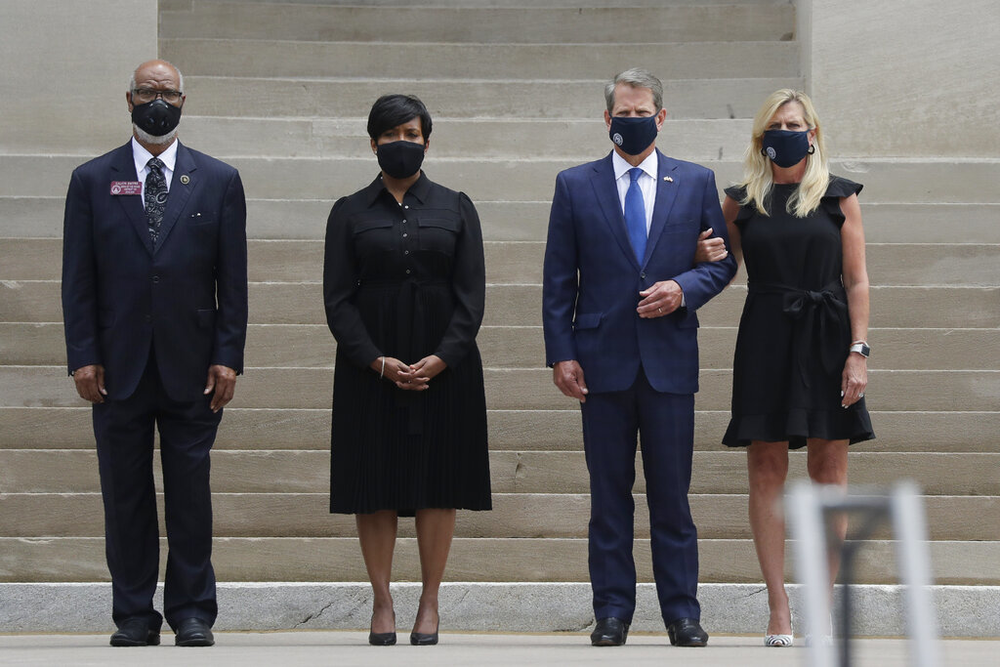
Caption
Georgia Gov. Brian Kemp, second from right, his wife Marty Kemp, right, and Atlanta Mayor Keisha Lance Bottoms, second from left, await the casket of Rep. John Lewis at the state capital, Wednesday, July 29, 2020, in Atlanta.
Credit: Byrnn Anderson/ AP News


